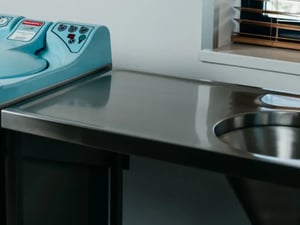About Us
What Is Thermal Disinfection And Why Is It Relevant To Bedpan Washers?
Bedpan washer disinfectors underpin the infection control strategy of numerous care homes ...
How DDC Dolphin Can Help Care Homes Cut Costs Amid National Insurance Rises
For care homes in the UK, cashflow is tighter than ever, with tough conditions forcing ...
DDC Dolphin Sluice Room Equipment Shrinks Downtime
In medical environments, dependable equipment is essential for safeguarding patients, as ...
Healing Your Budget: DDC Dolphin's Cure for Costly Procurement Practices
In today’s healthcare landscape, cost-efficiency is more crucial than ever.
Meeting Infection Control Challenges in Diverse Hospital Departments
From maternity wards to geriatric units and infectious disease units, maintaining ...
Boosting Infection Prevention with Standardised Hospital Cleaning Protocols
For hospitals, ensuring good hygiene and robust infection control standards is a ...
How DDC Dolphin Can Help to Achieve Your Hospital's Green Plan Goals
The NHS underpins the health of our nation – but without a clear path to reduce CO2 ...
Navigating Rising Temperatures with Enhanced Infection Prevention Measures
In recent years, climate change has increasingly left its mark on the global stage, with ...
The Enhanced Panamatic Maxi and Optima 3
Healthcare-associated infections – such as E. coli and C. difficile - can develop as a ...
Evaluating Suppliers: How To Choose The Right Partner For Your Sluice Room Project
Can your sluice room suppliers tick all eight boxes?
Infection Control Protocols: How Sluice Room Equipment Supports Compliance
The critical role of sluice rooms
Cleaning and Maintenance Tips for Long-Lasting Sluice Room Equipment
In the healthcare industry, the importance of maintaining high standards of hygiene and ...








